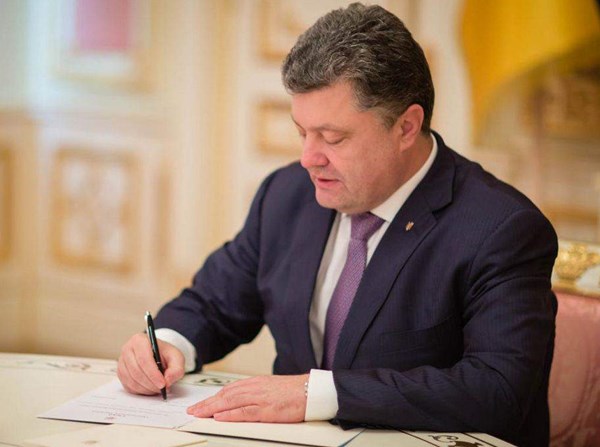Ukrainian President submits bill to extend ‘special status’ of Donbas
Ukrainian President Petro Poroshenko is proposing to extend the law “On a special order of local self-governance in the separate regions of the Donetsk and Luhansk provinces”.
Poroshenko submitted bill No. 9153 to the Verkhovna Rada on Wednesday.
The document’s text has not yet been published on the official parliament website, but the title indicates that an amendment will be made to article 1 of the law.
The law came into force on October 18, 2014, and its first article envisaged three years of a special order in the separate regions of the Donbas.
Many aspects of the law did not come into force, namely its articles: On amnesty and non-prosecution of participants in the events of the Donbas; On Donbas residents’ right to self-determination of language and option to use the Russian language in government organizations and local self-government; On the participation of local self-government in the appointment of the leaders of the prosecution office and courts; On the possibility of making an agreement with the local self-government on the economic, social and cultural development of the separate regions; On special state support in the reestablishment of industry and infrastructure; on the development of trans-border collaboration between the separate regions and Russia, and On the creation of people’s police units in the separate regions.
The Rada already extended the law’s term (the first article) in Autumn 2017. The remaining provisions will only come into force once a number of conditions are met, including the withdrawal of all illegal armed groups, their military equipment, and all militants and Russian mercenaries from Ukrainian territory.
The special order will come into effect from the moment local self-governance organs are established for the separate regions of the Donbas, through extraordinary elections held in accordance with Ukrainian legislation, in compliance with international standards, respecting human rights, and meeting a number of other conditions.
Earlier, Foreign Minister Pavlo Klimkin opposed the extension of the law before progress is made with the release of Ukrainian political prisoners in Russia, and also in light of the “elections” being announced in the so-called Donetsk and Luhansk People’s Republics. Verkhovna Rada Chairman Andriy Parubiy also said earlier that extending the law would not help to resolve the conflict in the Donbas.
At the same time, US Special Representative for Ukraine Kurt Volker believes that extending the term of the law is extremely important for maintaining sanctions against Russia. OSCE Special Representative Martin Sajdik is convinced that extending the law will make it easier to bring in a UN peacekeeping mission.
Ukraine originally adopted the law in Autumn 2014, but made amendments to it in the spring of 2015 which prevented it from coming into effect. The law states that the provisions on the special status of the regions will come into force only after democratic elections are held in the separate regions, and all mercenaries are withdrawn. The law’s term was limited to three years, and expired on October 18, 2017. It was then extended by another year.
The law on the special status will not come into effect until Russia withdraws its troops from the Donbas.
